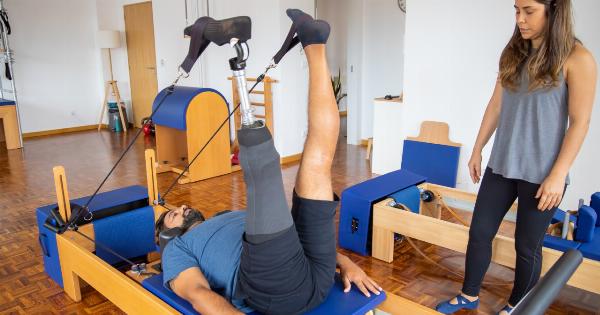Silicone breast implants have become increasingly popular in recent years, with many women opting to undergo breast augmentation procedures.
While these implants are often seen as a way to enhance appearance and boost self-confidence, it is important to consider the potential dangers they pose to the body. In this article, we will explore some of the risks associated with silicone breast implants and the impact they can have on overall health.
1. Rupture and Leakage
One of the primary concerns with silicone breast implants is the potential for rupture or leakage. Over time, these implants can weaken and develop tears, leading to the release of silicone gel into the surrounding tissue.
When this occurs, it can cause a range of symptoms, including breast pain, swelling, and changes in breast shape. In some cases, the leaked silicone gel can migrate to other areas of the body, leading to complications.
2. Capsular Contracture
Capsular contracture is another significant risk associated with silicone breast implants. When an implant is placed, the body naturally forms a fibrous capsule around it.
In some instances, this capsule can tighten and compress the implant, resulting in unnatural firmness, distortion, and discomfort. Severe capsular contracture may require additional surgery to correct the problem.
3. Inflammation and Immune System Response
Silicone breast implants have been linked to inflammatory reactions and immune system responses in some individuals. These reactions can manifest as chronic pain, fatigue, and a variety of autoimmune symptoms.
While the exact cause of these responses is still not fully understood, research suggests that the presence of silicone in the body may trigger an immune reaction in susceptible individuals.
4. Interference with Mammography
An important consideration when it comes to breast implants, including silicone implants, is their impact on mammography screenings. Implants can make it more challenging to detect abnormalities, such as breast cancer, on mammograms.
Special techniques and additional views are often required to obtain accurate results, potentially delaying diagnosis and treatment.
5. Psychological and Emotional Impact
While not a direct physical danger, it is crucial to address the potential psychological and emotional impact of silicone breast implants.
Unrealistic expectations, body image concerns, and complications from the surgery itself can lead to distress, anxiety, and depression in some individuals. It is important for anyone considering breast augmentation to be aware of these potential risks and to carefully weigh the benefits against the potential drawbacks.
6. Difficulty with Breastfeeding
For women who plan to have children or who are currently breastfeeding, it is important to note that silicone breast implants can sometimes interfere with the ability to breastfeed.
The surgery itself can damage milk ducts or nerves, which can impact milk production or cause breastfeeding difficulties. Additionally, the presence of implants may alter the sensation in the nipples and breasts, potentially impacting the breastfeeding experience.
7. Financial Considerations
While not directly related to the impact on the body, it is essential to consider the financial aspects of silicone breast implants. Breast augmentation surgeries, including the costs of implants, anesthesia, and follow-up care, can be significant.
Furthermore, if complications arise, additional medical expenses may be incurred, potentially causing financial strain.
8. Long-term Maintenance and Revision
It is also important to consider the long-term maintenance and potential need for revision surgeries when choosing silicone breast implants. Implants are not designed to last a lifetime, and they may require replacement or removal at some point.
This process involves further surgery and recovery, along with associated risks and expenses.
9. The Importance of Regular Monitoring
Due to the potential risks and complications associated with silicone breast implants, it is crucial for individuals with implants to undergo regular monitoring.
This typically involves routine check-ups, breast exams, and imaging studies, which can help identify any potential issues and address them promptly.
10. Consider Alternatives and Consultation
Finally, before opting for silicone breast implants or any cosmetic surgery procedure, it is essential to consider all available alternatives and consult with a qualified medical professional.
Exploring non-surgical options, discussing personal goals and expectations, and thoroughly understanding the potential risks can help individuals make informed decisions that align with their overall well-being.





























